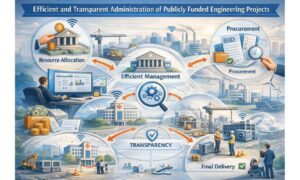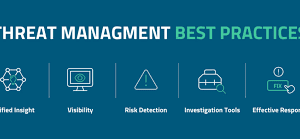Are you ready to lay the foundation for a thriving career in construction? As one of the most dynamic and vital sectors in the economy, the construction industry offers unparalleled opportunities for growth, innovation, and leadership. With projects ranging from towering skyscrapers to intricate bridges, successful project management lies at the heart of every achievement. In this post, we’ll explore five key project management positions that not only define success but also pave the way for your future in this exhilarating field. Whether you’re just starting out or looking to elevate your career trajectory, join us as we break down what it takes to excel in these sought-after roles!
Introduction to Project Management in the Construction Industry
The construction industry is a vibrant field filled with opportunities, innovation, and challenges. At the heart of every successful project lies effective project management. This discipline ensures that everything runs smoothly—from planning and budgeting to execution and delivery. With the increasing complexity of projects today, skilled managers are in high demand.
If you’re aiming for a fulfilling career where no two days are alike, exploring project management positions in construction might be your ideal path. Whether you’re drawn to leading teams or navigating logistical hurdles, there’s a place for you here. Let’s dive into what makes this field so crucial and which roles can set you on the road to success!
Why Project Management is Essential in Construction
Project management is the backbone of any construction project. It ensures that every task aligns with the overall vision, budget, and timeline. Without effective management, projects can quickly spiral out of control.
Timely completion is critical in construction. A well-structured project management approach keeps teams on track and minimizes delays caused by unforeseen circumstances.
Budget adherence is another vital aspect. Skilled project managers carefully monitor expenses to prevent overruns, which can jeopardize profitability.
Communication plays a key role as well. Project managers liaise between various stakeholders—clients, contractors, and suppliers—to ensure everyone stays informed and aligned.
Lastly, risk management cannot be overlooked. Identifying potential issues early allows for proactive mitigation strategies, safeguarding both the project’s integrity and its financial success.
Top 5 Project Management Positions in Construction
The construction industry offers a variety of exciting project management positions. Each role plays a crucial part in bringing projects to life, ensuring they are completed on time and within budget.
First up is the Construction Project Manager. This position oversees every phase of construction, from planning to execution. They coordinate teams and ensure compliance with regulations.
Next, we have the Site Manager, who focuses on day-to-day operations at the job site. Their hands-on approach ensures that safety standards are met while managing labor resources effectively.
Then there’s the Estimator, responsible for calculating costs and preparing budgets. Accurate estimations are vital for financial success in any project.
Another key role is the Scheduler, who develops timelines and monitors progress against milestones. They keep everything on track by adjusting plans as necessary.
Lastly, consider becoming a Quality Control Manager. This position emphasizes maintaining high standards throughout the construction process by conducting inspections and audits regularly.
– Job Description and Responsibilities
Project management positions in construction carry a variety of responsibilities that ensure projects run smoothly from start to finish. A project manager orchestrates all phases, including planning, execution, and completion.
They coordinate with various stakeholders like architects, engineers, and subcontractors. This collaboration is essential for maintaining timelines and budgets.
Another critical duty involves risk assessment. Project managers analyze potential obstacles before they arise, allowing for proactive solutions. They also handle resource allocation to maximize efficiency on the job site.
Monitoring progress is key as well. Keeping track of milestones helps ensure the project stays on schedule while adhering to safety standards and regulations.
Effective communication is paramount too; regular updates keep everyone informed about changes or challenges that may emerge during the project lifecycle.
– Required Skills and Qualifications
To excel in project management positions in construction, a mix of technical and soft skills is crucial. Strong leadership abilities help guide teams through complex projects. Effective communication ensures everyone stays informed.
Technical knowledge about construction processes, materials, and safety regulations is non-negotiable. Familiarity with project management software also enhances efficiency.
Problem-solving skills are essential for navigating unexpected challenges on-site. The ability to think critically enables managers to devise solutions quickly.
Education plays a key role as well. A degree in construction management or engineering often serves as the foundation. Certifications like PMP (Project Management Professional) can further strengthen your qualifications and set you apart from other candidates.
Lastly, attention to detail cannot be overlooked. This skill helps prevent costly mistakes that could derail timelines and budgets. Balancing these competencies will pave the way for success in this dynamic field.
– Salary Range
When considering project management positions in construction, salary can vary widely based on experience and location. Entry-level roles may start around $60,000 annually. However, as professionals gain experience and take on more complex projects, salaries can climb significantly.
Mid-level project managers often earn between $80,000 to $120,000 per year. These individuals typically oversee larger teams and manage substantial budgets. Their expertise is crucial for maintaining timelines and ensuring quality standards are met.
Senior positions such as program manager or director of construction can command impressive salaries ranging from $120,000 to over $150,000. In high-demand markets or with specialized skills, some professionals might even exceed this threshold.
Benefits also play a significant role in compensation packages within the industry. Health insurance, retirement plans, bonuses for successful project completions—these add considerable value beyond just the base salary.
– Career Growth Opportunities
Career growth opportunities in project management within the construction industry are abundant and diverse. As you gain experience, you can move up the ladder into senior positions like Senior Project Manager or Program Director.
With a solid track record, many professionals transition into executive roles such as Chief Operations Officer (COO) or even Chief Executive Officer (CEO). These positions involve strategic oversight of multiple projects and initiatives, greatly expanding your influence within an organization.
Additionally, specialization provides another avenue for growth. Focusing on areas like sustainability or safety management can set you apart from others. This expertise is increasingly valued as industries adapt to new regulations and expectations.
Professional development through certifications also enhances career prospects. Credentials like PMP (Project Management Professional) not only validate your skills but open doors to higher-level opportunities. Each step taken adds significant value to both your resume and professional network.
Tips for Landing a Project Management Position in Construction
Education plays a crucial role in landing project management positions in construction. A degree in civil engineering, architecture, or construction management can give you a competitive edge. Supplementing your education with industry-specific certifications, such as PMP or CAPM, showcases your commitment and expertise.
Relevant work experience is equally important. Seek internships or entry-level roles that introduce you to the nuances of construction projects. Hands-on experience will make your resume stand out to employers.
Networking is vital for connecting with industry professionals. Attend conferences, workshops, and local meetups to build relationships. Joining professional organizations can open doors and provide valuable insights into job opportunities.
Don’t underestimate the power of social media platforms like LinkedIn. Engaging with industry discussions and sharing relevant content can enhance your visibility among potential employers while showcasing your passion for project management.
– Education and Certifications
A solid educational foundation is crucial for aspiring project managers in construction. Most positions require at least a bachelor’s degree in construction management, civil engineering, or a related field. This formal education provides essential knowledge of building codes, safety regulations, and construction techniques.
Certifications can significantly enhance your credentials. The Project Management Professional (PMP) certification from the Project Management Institute is highly regarded. It demonstrates your commitment to best practices and effective project execution.
Additionally, consider specialized certifications like Certified Construction Manager (CCM). These qualifications not only strengthen your resume but also signal expertise to potential employers.
Keep in mind that practical training through internships or cooperative programs during college can be just as valuable as classroom learning. Real-world experience helps bridge the gap between theory and practice while expanding your professional network within the industry.
– Relevant Work Experience
Relevant work experience is crucial for anyone looking to secure project management positions in construction. It demonstrates your ability to handle complex projects and navigate the unique challenges of the industry.
Start by seeking internships or entry-level roles that focus on construction management. These positions allow you to gain hands-on experience while learning about various phases of a project, from planning to execution.
As you progress, consider taking on leadership roles in smaller projects. This not only builds your resume but also enhances your decision-making skills under pressure.
Volunteering for community projects can also provide valuable exposure. Working with different teams fosters collaboration and communication—two essential traits for any successful project manager.
Finally, don’t underestimate the power of diverse experiences outside direct construction roles. Skills gained from related industries can often be transferred into this field effectively.
– Networking and Building Connections
Networking is a vital component of advancing your career in project management within the construction industry. Building connections can open doors to opportunities that may not be advertised.
Attend industry conferences, workshops, and seminars to meet professionals who share your interests. These gatherings are gold mines for collaboration and mentorship possibilities.
Don’t underestimate the power of online platforms like LinkedIn. Engage with groups related to construction project management. Share insights, ask questions, and contribute meaningfully to discussions.
Consider joining professional organizations such as the Project Management Institute (PMI) or local trade unions. Membership often provides access to exclusive job boards and networking events tailored for members.
Finally, take the initiative by reaching out directly to people whose work you admire. A simple coffee chat can lead to invaluable advice or even job referrals down the line.
Challenges and Rewards of a Career in Project Management within Construction Industry
A career in project management within the construction industry presents a unique set of challenges. Tight deadlines, budget constraints, and ever-changing regulations can create pressure that’s hard to manage. Navigating conflicts among diverse teams also requires strong interpersonal skills.
However, the rewards are significant. Successfully completing a project brings immense satisfaction. Watching your vision transform into tangible structures is fulfilling on many levels.
Furthermore, this field offers abundant opportunities for professional growth. You can advance to senior management roles or specialize in areas like sustainability or technology integration.
The dynamic nature of construction keeps things interesting day-to-day. Each project presents new problems to solve and innovative solutions to explore, ensuring no two days are alike in this exciting career path.
Conclusion
In today’s competitive job market, building a successful career in the construction industry requires specialized skills and knowledge. By highlighting the top project management positions within this field, we hope to guide aspiring professionals towards lucrative opportunities and help them pave their way towards a fulfilling career. So whether you have years of experience or are just starting out, keep these top project management positions in mind as you work towards achieving your goals in the construction industry. With determination and dedication, success is well within your reach.



































